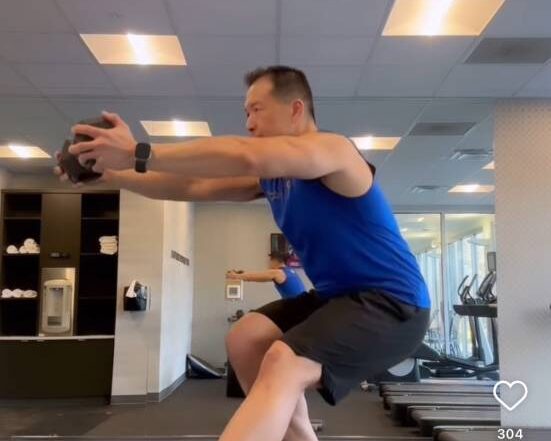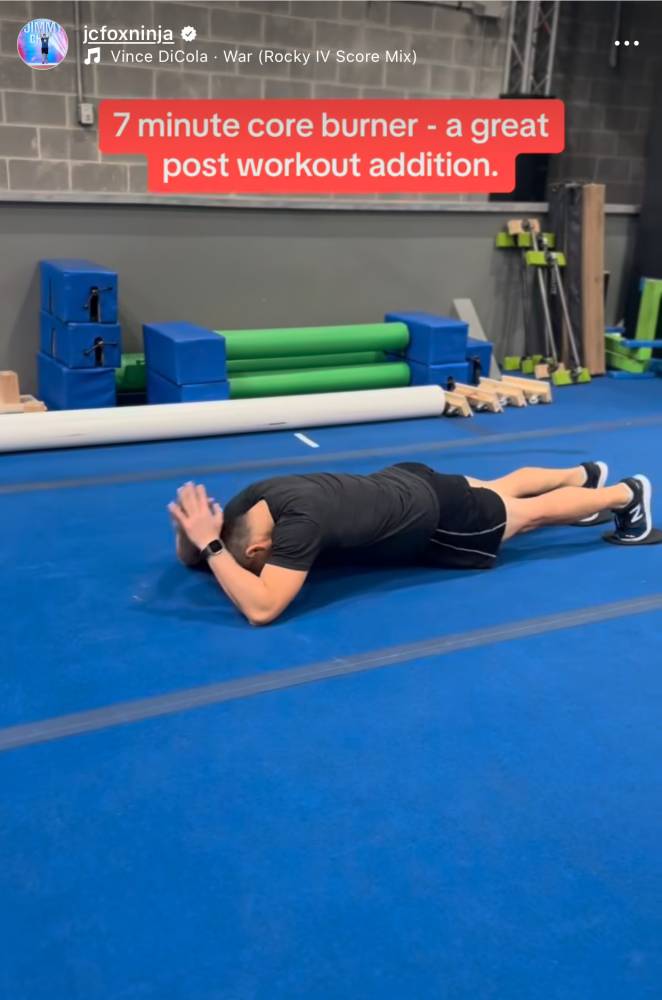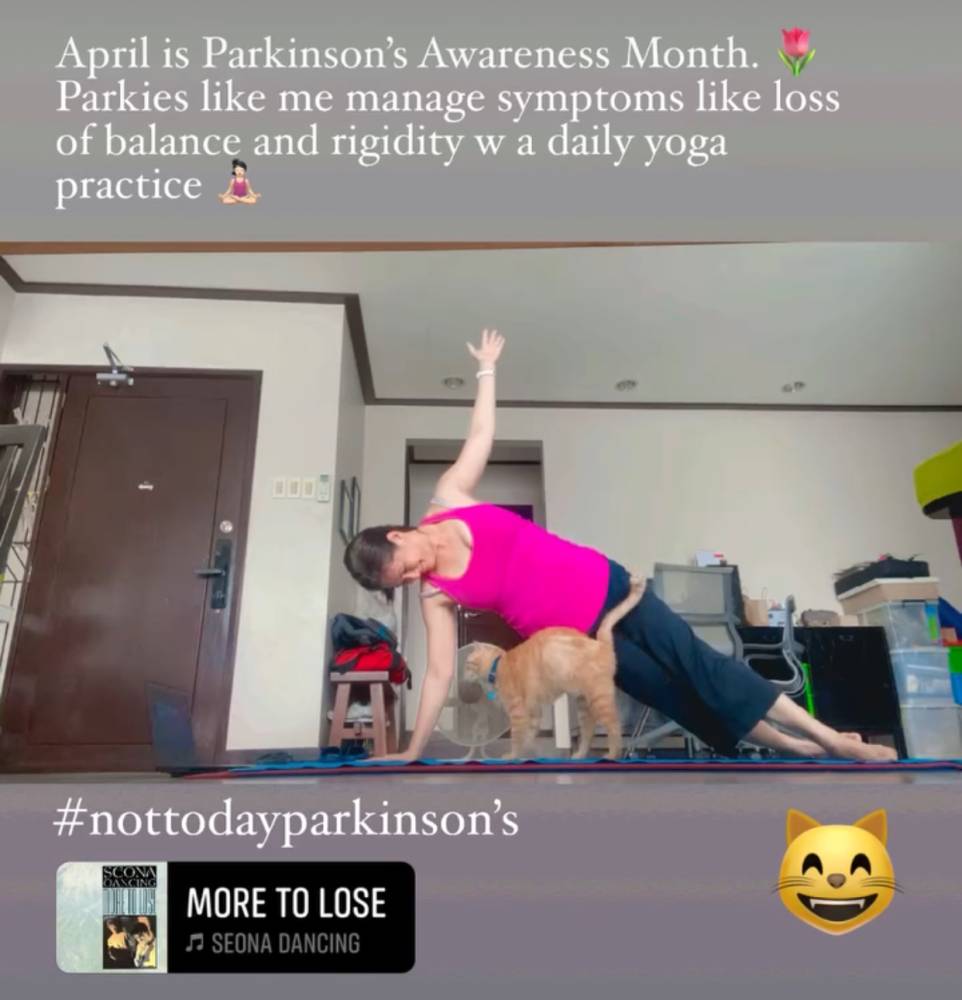A Ninja Warrior’s battle with Parkinson’s

When he was 27 years old, Jimmy Choi was diagnosed with young-onset Parkinson’s disease (YOPD). His first doctor told him to get his affairs in order as he’d be in a wheelchair by age 45. Instead, at 45, Choi competed for the fifth time on the TV reality competition “American Ninja Warrior” (ANW).
He’s also a two-time world record holder, one of which was for most chest-to-ground burpees in one minute. Why burpees? “As a person living with Parkinson’s, I fall,” explained Choi in an article for the Michael J. Fox Foundation. “The movement simulates a fall and builds strength as you push yourself back up.”
On a podcast with the Young Onset Parkinson’s Network, Choi said he’d wake up with stiffness and rigidity, which is typical of an active lifestyle. He had an intense job in technology, so he attributed twitches to stress. Then, his arm wasn’t swinging when walking, and his pupils were dilating very slowly, which prompted his diagnosis. He admitted that without it, he probably would’ve ignored symptoms for years, thinking it was just life.
At first, he didn’t want to take his medication because of the side effects like nausea. “I tried to make as much money as I could so that my family wouldn’t have to worry about my care in the future. But ultimately, that added stress to my situation, accelerating the progression,” said Choi.
He weighed 240 pounds and needed a cane to walk.

Forced physical activity
Then, while carrying his infant son, he tumbled down the stairs. They weren’t badly hurt, but the accident led him to action. He joined a clinical trial on forced physical activity. Choi noticed that after these sessions, he felt better, so he started walking with his family, cane in tow. Every day, he tried to do a bit more. Eventually, he participated in 16 marathons, 105 half-marathons, ultra marathons and triathlons.
“Parkinson’s is different day by day. My intense physical activity gave me back a lot of abilities and more time to spend with my family. And that helped with my mental state tremendously,” he said.
Today, the elite athlete continues to remove the stigma and misconceptions about PD, especially for younger audiences, on platforms like TikTok. I am grateful that his inspiring videos were what I first encountered when I was diagnosed last year. Since I don’t know anyone else with YOPD, I actively reach out to groups online for support, information and understanding.
April is Parkinson’s Awareness Month. It is the fastest-growing neurological disease worldwide, and it still has no cure. Certain forms of exercise can help slow its progression, and I feel its effects vs. relying on medication alone. When I’m unable to be as active when I’m down with a cold or when I have my period, the symptoms get pretty rough even as I religiously take my medication.
Choi uses his condition and appearances on ANW to advocate for PD awareness. I used to find people’s fitness posts on social media narcissistic and unnecessary unless it’s instructional by a legit coach. As reluctant as I was at first, I, too, now regularly share snippets of my fitness journey, as these instances are opportunities to show how I counter this cruel dopamine thief. I am grateful for the encouraging, positive words I get from unexpected people who take the time to express their support and appreciation for learning more about PD.

Parkinson’s misconceptions
Most don’t realize that 30 percent of people with Parkinson’s don’t have tremors. Cognitive concerns accompany the disease, such as vocal cord issues, loss of smell and difficulty swallowing. Challenges with movement aren’t just with hands or feet; it’s anything that moves in your body like your tongue, bowels and heart—these are all affected by Parkinson’s.
Aside from nausea, another side effect of the medication is dyskinesia, an uncontrollable rhythmic movement. On a “Brain & Life” podcast, Choi said, “I have about four hours of good movement before I need just to sit down and rest and not be able to move for quite a while.” He gets only four to five hours of sleep daily because that’s another PD symptom: insomnia. The rest of the day, Choi struggles to move. “Because Parkinson’s doesn’t kill you, everybody’s focused on something else that, I guess, has a higher sense of urgency like cancer or heart attacks. But living 30 or 40 years, slowly losing control of your body—are you mentally strong enough to handle that?” he asked.
However, people with Parkinson’s are more likely to die sooner because of falls due to movement problems, pneumonia related to swallowing issues, and frailty, so even minor medical problems can become more serious.
Experiencing constipation, insomnia, depression or foot dragging/slapping? Do you have cramped handwriting, get frozen shoulder often, or have balance issues? Are you “just getting older” or is it Parkinson’s? See a neurologist or movement disorder specialist to find out. —CONTRIBUTED INQ

















